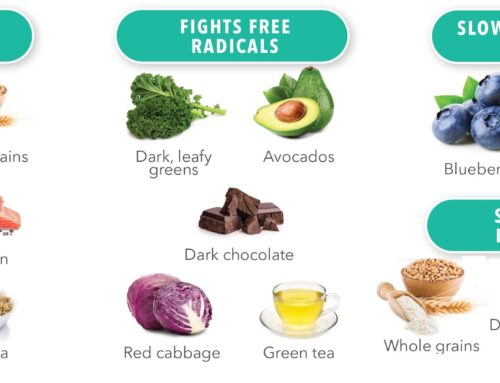
Original article from Harrison Healthcare
As we age, the desire to live longer and healthier becomes increasingly important to us. Fortunately, the speed at which medical advances are being made is working in our favor. Researchers are uncovering ways for us to combat aging and other diseases through a process called autophagy.
Autophagy is a biological, cellular cleansing process that is linked to a longer, healthier lifespan. improved metabolism, enhanced energy production, and weight loss promotion – particularly targeting abdominal fat. Evidence is accumulating to also support protection from diseases such as cancer, Alzheimer’s, and Parkinson’s disease.
Autophagy has some impressive benefits, but there’s no magical internal switch that turns it off and on. If you really want to reap the benefits of autophagy, you can induce it with nutrition and support it through healthy and balanced lifestyle habits in the areas of sleep, exercise, and addressing uncomfortable and stressful emotions.
What is Autophagy?
Autophagy is the body’s way of cleaning house. “Auto” means self, and “phagy” means eat. So, autophagy translates to ‘self-eating.’
It is an evolutionary process that occurs in most cells of the body to maintain homeostasis during times of nutrient depletion. It is a way for the cell to pick up dysfunctional, damaged, or toxic components of the cell and break them down to be used for energy. The energy produced is created by the mitochondria – the powerhouse of the cell.
The process of autophagy ensures proper removal of debris and damaged tissues from the cell to help it function smoothly. While the autophagy process is naturally occurring, our modern diets and lifestyle habits do not optimize it as we consume nutrients through food and drink through much of our awake time.
What are the longevity-boosting benefits?
On the cellular level, autophagy is critical to the healthy aging process. According to the mitochondrial theory of aging, reactive oxygen species damage the mitochondria and decrease their ability to support living cells with adequate energy. An increase in reactive oxygen species leads to shorter life expectancy. In other words, autophagy is a critical component to preserving mitochondrial function, which keeps your body youthful by eliminating the accumulation of reactive oxygen species (also called free radicals).

Disease experts are also looking to autophagy to help prevent neuropathy diseases. When looking at Huntington’s, Alzheimer’s, and Parkinson’s diseases, autophagy is widely regarded as beneficial for promoting cell viability and eliminating debris like damaged tissues, non-functional proteins and organelles.
Cancer researchers are finding that inducing autophagy through dietary intervention may help with cancer treatment for a variety of malignancies. Fasting specifically has shown promise in protecting normal cells from cancer fighting treatments, and possibly reducing side-effects in patients.
Cancer and neuropathy diseases are both areas where the development of autophagy inducing pharmacologicals is an enticing area of future research and development.
The question is, how can we stimulate autophagy through diet?
Scientists agree that intermittent fasting or calorie reduction are therapeutic tools for inducing autophagy. Evidence also points to what we eat, including the specific nutrients, proteins, fats, and fibres.
Intermittent fasting or calorie restriction to activate autophagy
Intermittent fasting and calorie reduction are both methods that have been shown to activate autophagy, stimulate DNA repair, defend against oxidative stress, decrease chronic inflammation and ultimately increase lifespan.
Reducing total calories is one of the few ways we know how to increase lifespan in all species. This is defined as a reduction of calories without malnutrition over a given period of time.
Several studies have been conducted where participants decreased their calorie consumption by 25% to as little as 10% and all resulted in improved cell function and reduced mitochondrial aging, among other benefits. Calorie restriction is most often achieved by reducing meal size.
A number of communities throughout the world have now been identified as having exceptionally healthy, long-living citizens including: Ikaria, Greece; Okinawa, Japan; Ogliastra Region, Sardinia; Loma Linda, California; and Nicoya Peninsula, Costa Rica. These “Blue Zone” communities boast people consistently reaching age 100 and at rates that outpace much of the world. The consistent factor in these communities is nutrition and healthy eating patterns, most notably avoiding over-eating (for example, stop eating when the stomach is 80% full).
Compared with intermittent fasting, calorie restriction may be more difficult to maintain long term but has similar benefits. This approach should be carefully guided by a physician and/or registered dietitian to ensure you are meeting your body’s nutritional needs based on your personalized health history and lifestyle.
Accumulating evidence now supports intermittent fasting to trigger a metabolic switch from utilizing glucose as an energy source to using ketones, which are generated by the body when glucose stores are low. The result is increased stress resilience, longevity, and a lower rate of disease.
How to introduce intermittent fasting
To enter a fasted state, most guidelines recommend a 16:8 fast. This involves an 8-hour window of eating with a 16-hour fasting window. Typically, people fast between 8pm one evening to 12pm (noon) the next day, but this can vary depending on a person’s schedule and preferences.

The benefits of intermittent fasting can be earned by practicing this as little as once or twice a week. Increasing to a daily cycle with time and comfort simply increases the benefits.
For healthy people, intermittent fasting is virtually all reward and no risk. However, if you have diabetes, hypothyroidism, or adrenal gland dysfunction, you should talk to your doctor first.
At the cellular level
When done on a regular basis, intermittent fasting has been shown to decrease abdominal visceral fat and reduce free-radical production. Free radicals are those unstable molecules, or “reactive oxygen species” that can cause damage to DNA, lipids, and proteins, and are tied to cancer risk.
Either intermittent fasting or calorie reduction have been shown to counteract the “hallmarks of aging” that include:
- mitochondrial dysfunction
- inhibition of cellular division (senescence)
- DNA damage (telomere shortening)
Essentially, optimizing autophagy can help keep your cells both healthy and young.
Of course, proper nutrition, adequate sleep, and regular movement are vital to healthy cells and a long life. In combination with the above strategies, consuming a well-balanced diet and moving your body are essential for successfully stimulating autophagy. Speak with your registered dietitian to find out what can work best for you.
Before beginning either type of dietary invention, it’s important to consult with your physician and/or registered dietitian to ensure you are healthy enough to make a change and that one of these methods is right for your needs. Read part two to learn about the significant roles exercise and nutrition have in safely stimulating autophagy. Long-term success rates tend to be much higher for those who have ongoing support, so engage with the Harrison Healthcare team for clear guidance, motivation, and ongoing health monitoring.



